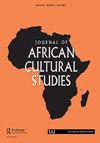Undetermined Identity: A Diaspora Scholar in China–Africa Studies
IF 0.7
2区 社会学
Q2 CULTURAL STUDIES
引用次数: 0
Abstract
The subtitle of this roundtable discussion, “an encounter with another ‘other’”, is strangely compelling to me, who is Asian American, broadly, and Vietnam-born ethnic Chinese American, specifically, engaged in research in South Africa and China. In these contexts, “another ‘other’” is a mirror of the “self” (i.e. other ethnic Chinese) and peoples who have also historically experienced marginalization and occupied a subordinate position in societies (i.e. African people). In relation to “another ‘other’”, my otherness is complicated by my American background. The Americanness is not phenotypically obvious, but subtly signaled through the clothes I wear, the accent (or ability to speak English in a way that non-American listeners regard as being “without an accent”) and certain values I hold, among other things. Needless to say, these identities aid and hinder ethnographic research in myriad ways. Rather than elaborating on dynamics from fieldwork in African and Chinese contexts, I want to think through the struggles and challenges of being Asian American, with scholarly expertise in South Africa and Chinese diaspora studies, working in Chinese academia. My thoughts on the state’s role in facilitating an essentialist view of China–Africa (Africa–China) studies, Eurocentrism in China–Africa studies and ambivalence towards diaspora scholars primarily draw on my position at a Chinese university in southern China since 2013 until now; and through these points, I share some observations of developments in the study of China–Africa relations in China. The first time I unequivocally recognized that I am an outsider of the China–Africa field in China was in late 2018, two years into my appointment as acting associate professor at the same university where I completed a postdoctoral fellowship. A colleague, who was the director of the African Studies Center in our school (or college) before a tragic death, inquired if I had received an invitation to participate in the inaugural conference of the ‘One Belt One Road’ African Research Alliance, organized by Guangdong University of Foreign Studies (广外“一带一路”非洲研究联盟会议), a university just 15.2 km from our own. Even though he could not obtain our school’s approval to transfer the Center’s director position to me in 2016 (he informed me at that time) due to my foreigner status, he still wanted me to represent the Center. He gave me the contact details of the organizer,身份未定:一个中非研究的散居学者
这次圆桌讨论的副标题是“与另一个‘他者’的相遇”,这对我来说是一种奇怪的吸引力,我广泛地是亚裔美国人,尤其是在越南出生的华裔美国人,在南非和中国从事研究。在这种情况下,“另一个‘他者’”是“自我”(即其他华裔)和历史上也经历过边缘化并在社会中占据从属地位的民族(即非洲人民)的一面镜子。关于“另一个”,我的另类因我的美国背景而变得复杂。美国性并不是典型的明显,而是通过我穿的衣服、口音(或以非美国听众认为“没有口音”的方式说英语的能力)和我持有的某些价值观等微妙地表现出来的。不用说,这些身份在许多方面帮助和阻碍了民族志研究。我不想详细阐述非洲和中国背景下实地调查的动态,而是想思考作为一名亚裔美国人,在南非和中国侨民研究方面拥有学术专长,在中国学术界工作的斗争和挑战。我对国家在促进中非(非中)研究的本质主义观点、中非研究中的欧洲中心主义以及对散居学者的矛盾心理方面所起的作用的思考,主要是基于我自2013年至今在中国南方一所中国大学的立场;通过这些,我分享了对中国中非关系研究进展的一些看法。我第一次明确承认自己是中国中非领域的局外人是在2018年底,也就是我在同一所大学担任代理副教授两年后,我在那里完成了博士后研究。一位同事在我们学校(或学院)不幸去世前担任非洲研究中心主任,他问我是否收到了参加由广东外语外贸大学组织的“一带一路”非洲研究联盟成立大会的邀请(广外“一带一路”非洲研究联盟会议), 一所离我们只有15.2公里的大学。尽管由于我的外国人身份,他无法在2016年获得我们学校的批准将中心主任的职位移交给我(当时他通知了我),但他仍然希望我代表中心。他给了我组织者的联系方式,
本文章由计算机程序翻译,如有差异,请以英文原文为准。
求助全文
约1分钟内获得全文
求助全文
来源期刊

Journal of African Cultural Studies
Multiple-
CiteScore
1.70
自引率
10.00%
发文量
13
期刊介绍:
The Journal of African Cultural Studies publishes leading scholarship on African culture from inside and outside Africa, with a special commitment to Africa-based authors and to African languages. Our editorial policy encourages an interdisciplinary approach, involving humanities, including environmental humanities. The journal focuses on dimensions of African culture, performance arts, visual arts, music, cinema, the role of the media, the relationship between culture and power, as well as issues within such fields as popular culture in Africa, sociolinguistic topics of cultural interest, and culture and gender. We welcome in particular articles that show evidence of understanding life on the ground, and that demonstrate local knowledge and linguistic competence. We do not publish articles that offer mostly textual analyses of cultural products like novels and films, nor articles that are mostly historical or those based primarily on secondary (such as digital and library) sources. The journal has evolved from the journal African Languages and Cultures, founded in 1988 in the Department of the Languages and Cultures of Africa at the School of Oriental and African Studies, London. From 2019, it is published in association with the International African Institute, London. Journal of African Cultural Studies publishes original research articles. The journal also publishes an occasional Contemporary Conversations section, in which authors respond to current issues. The section has included reviews, interviews and invited response or position papers. We welcome proposals for future Contemporary Conversations themes.
 求助内容:
求助内容: 应助结果提醒方式:
应助结果提醒方式:


